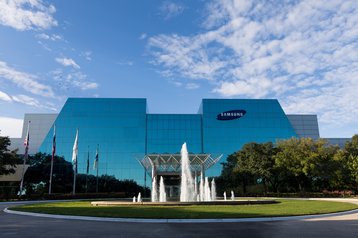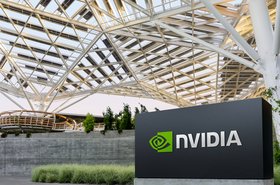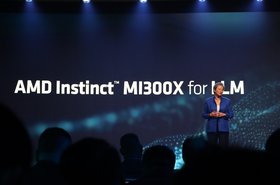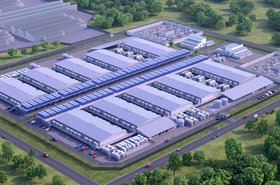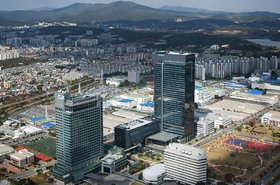A resurgence in demand for Samsung Electronics’ memory offerings for AI workloads saw the company report a 13 percent year-over-year increase in revenue during Q1 2024, totaling 71.92 trillion Korean won (about $52.3 billion).
When compared to the previous year, the company’s operating profit also increased by 933 percent during the same period to 6.61 trillion Korean won ($4.8bn), beating analysts expectations. It paints a stark reversal of fortunes for Samsung, which reported its lowest quarterly profit since 2014 in January of the previous year.
Samsung is the largest global producer of DRAM chips and the company has benefited significantly from the increase in price of DRAM and NAND flash memory chips, largely driven by the continuing demand for generative AI.
The company added that demand for DDR5 and high-density SSDs also remained strong, noting that the anticipated “continuous increase in the supply of AI servers and subsequent expansion of associated cloud services” would further boost demand for HBM in addition to conventional servers and storage solutions.
Samsung started mass-producing HBM3E 8H this month to address the growing demand for generative AI and, in a statement, the company said it plans to begin mass-producing HBM3E 12H products and a 128GB product based on 1 billion nm 32Gb DDR5 within the second quarter.
Mass production of V9 NAND also started this month and Samsung also plans to expand its SSD sales for servers by developing and sampling its ultra high-density 64 terabyte SSD during the second quarter.
Earlier this month, the company announced it would be investing $40 billion to build a semiconductor cluster across a number of locations in Texas, including two semiconductor foundries producing 4nm and 2nm chips, an advanced packaging facility for high memory bandwidth in the city of Taylor.
“We expect the industry recovery trend to continue throughout the quarter, mainly led by the demand for generative AI,” said Jaejune Kim, EVP, Memory, Samsung, on the company’s earnings call.
“In particular, the continuous increasing supply of AI servers and subsequent expansion of our associated cloud services should increase the demand for HBM, which is directly linked with AI, but also conventional servers and storage in parallel. Therefore, we expect overall server-related demand to remain strong.”
However, Kim noted that the company is expecting to see some production constraints as it tries to meet the demand for DRAM and NAND chips. As a result, Kim said Samsung intends to “flexibly adjust [its] product mix in accordance to demand,” allowing it to “actively respond” to calls for AI products.

